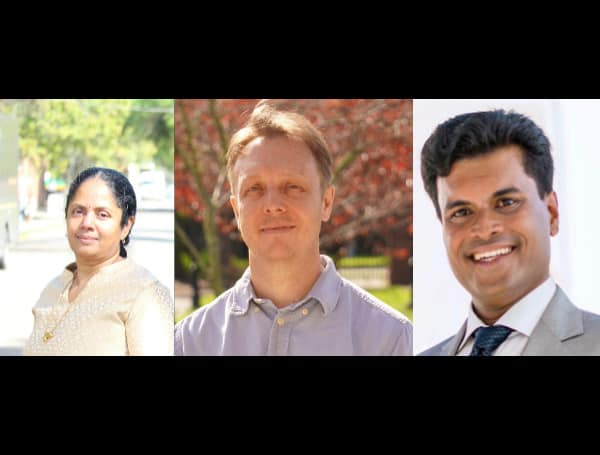Funding for student fellowships is included in a new $1.4 million, three-year National Science Foundation grant that faculty from the University of Florida and Florida A&M University (FAMU) will use to train a diverse workforce for potential careers in artificial intelligence.
The UF Institute of Food and Agricultural Sciences and FAMU — a historically Black university and UF’s land-grant partner — will collaborate to recruit and retain traditionally underrepresented students in AI-related education and research.
In the first year, faculty members from UF and FAMU will use $736,000 to fund faculty and 250 undergraduate student fellowships. Each student will receive $5,000 per year and the fellowships are potentially renewable for multiple years. Although the fellowships are earmarked for students at UF and FAMU, more fellowship funds have been budgeted for FAMU students to help alleviate financial barriers to the courses.
Bryan Kolaczkowski, a UF/IFAS associate professor of microbiology and cell science, will lead the project. He sees the potential to leverage AI to bring huge advantages to society. But he wants the AI workforce to be inclusive so it can benefit all.
“AI is expected to impact all fields in the agricultural and life sciences in the future,” Kolaczowski said. “Students engaged in AI are expected to be competitive in traditional agricultural and life sciences roles, including biomedical sciences. In addition to increasing competitiveness in traditional jobs, AI is expected to create massive new job opportunities in data science, process management, diagnostics and similar areas. Experience in AI will help students be competitive for these new types of careers in agricultural and life sciences.”
To educate a diverse, next-generation AI workforce, this project will develop a curriculum in which students from outside traditional computer-science fields can learn AI-related concepts and skills and how AI can be address critical, emerging problems in their field.
A diverse AI-enabled workforce means that a variety of interests, backgrounds, experiences, socioeconomic status, races, ethnicities, genders and technical abilities are all present during the development, deployment and evaluation of AI systems, he said.
“We think the best way to achieve this is to make sure that everyone has a ‘seat at the table’ of AI, ” Kolaczowski said.
This semester, for the first time, Kolaczowski is teaching AI for agricultural and life sciences. As more courses are made available, most students will learn online, from anywhere in the world. But students will transition to an undergraduate research course, and much of that will be in-person, either at UF/IFAS or at FAMU, Kolzaczowski said.
“This approach of integrating ‘AI across the curriculum’ is expected to enable all interested students to graduate equipped to engage AI in their chosen discipline fairly and equitably. Every graduate should at least understand what AI can do,” Kolaczowski said.
By leveraging UF’s partnership with NVIDIA, this project provides unprecedented student access to HiPerGator AI, one of the most advanced AI-focused computational resources in the world.
“By partnering with UF, students and faculty at FAMU are gaining unprecedented access to training and high-performance computing resources, which will help to increase the competitiveness of students from FAMU engaged in this program,” Kolzaczowski said. “Additionally, a strategic partnership between UF and FAMU provides avenues to engage diverse undergraduates in AI-related education and research, including fields such as agriculture, natural resources, business, engineering and health-related fields.”
Aavudai Anandhi Swamy, an associate professor of biological systems engineering at FAMU, added: “Diversity is important to us. Our program in the past 30 years has succeeded in increasing the pool of African Americans and other minorities in agricultural and biological engineering nationally, and many hold key positions in both the public and private sector.”
Satyanarayan Dev, also an associate professor of biological systems engineering at FAMU said: “We want to make sure that when an AI system makes a decision, it will be able to make an accurate one without any bias. This grant helps us make a step forward in this right direction.”
Support journalism by clicking here to our gofundme or sign up for our free newsletter by clicking here
Android Users, Click Here To Download The Free Press App And Never Miss A Story. It’s Free And Coming To Apple Users Soon.

